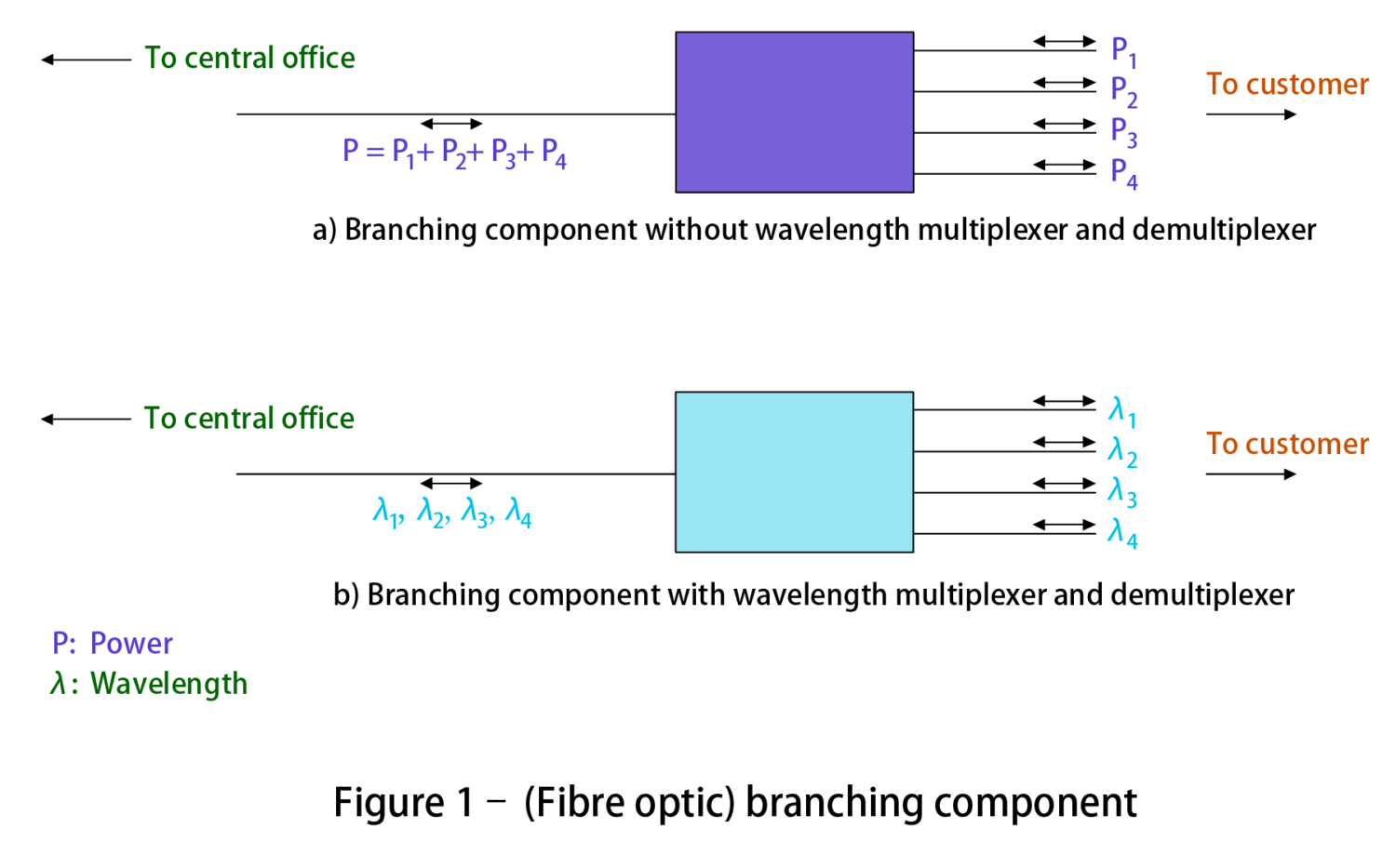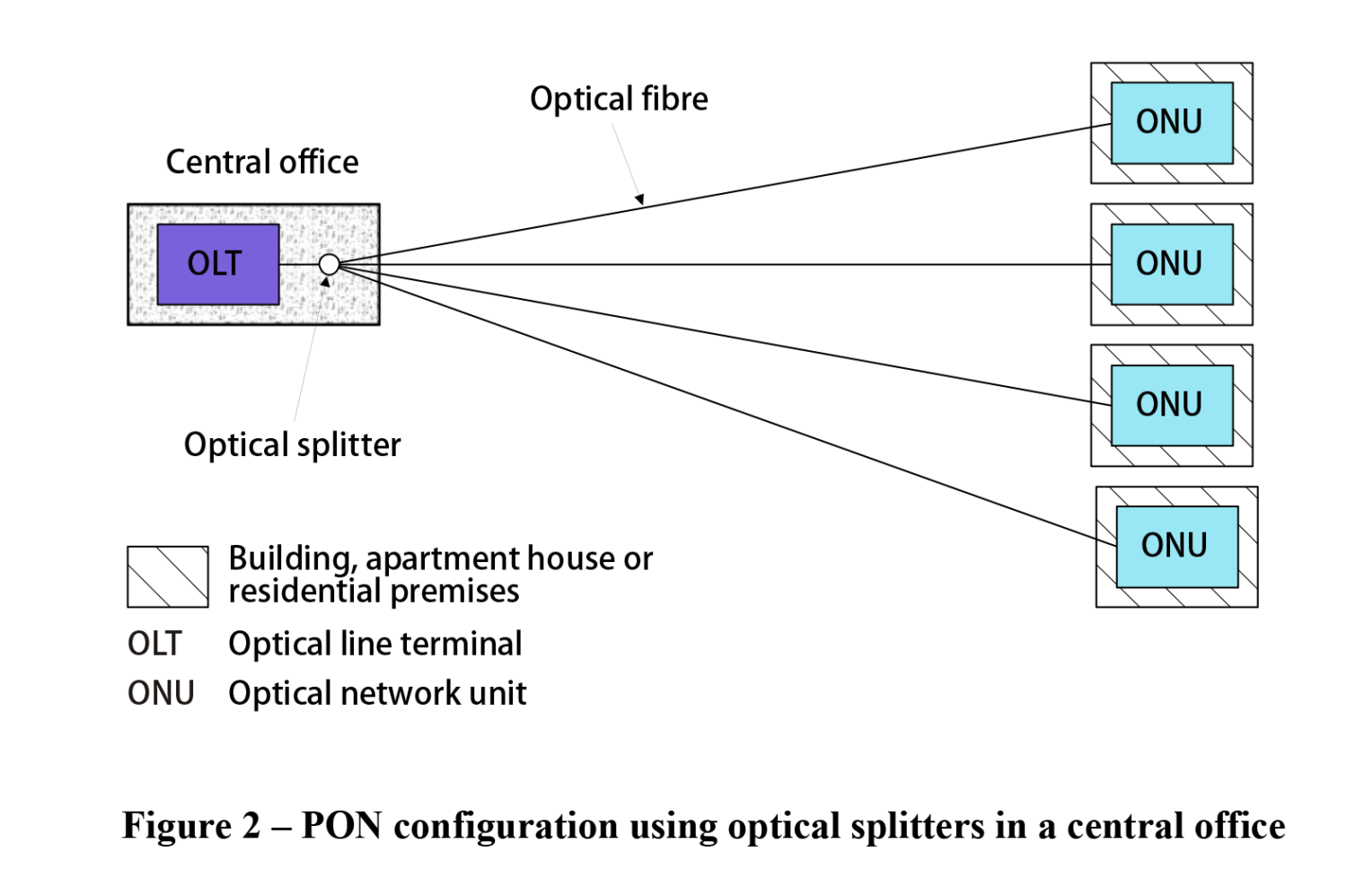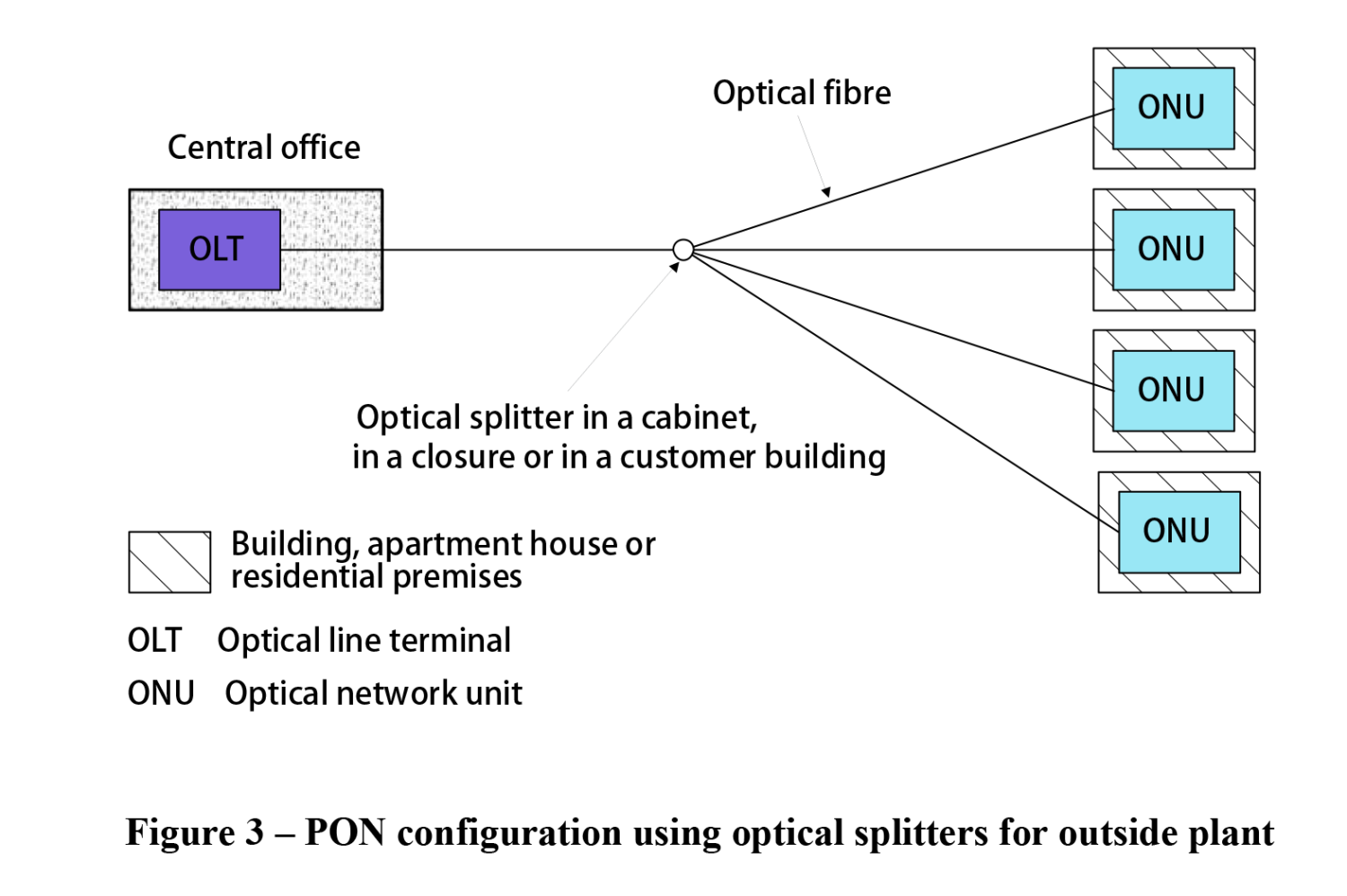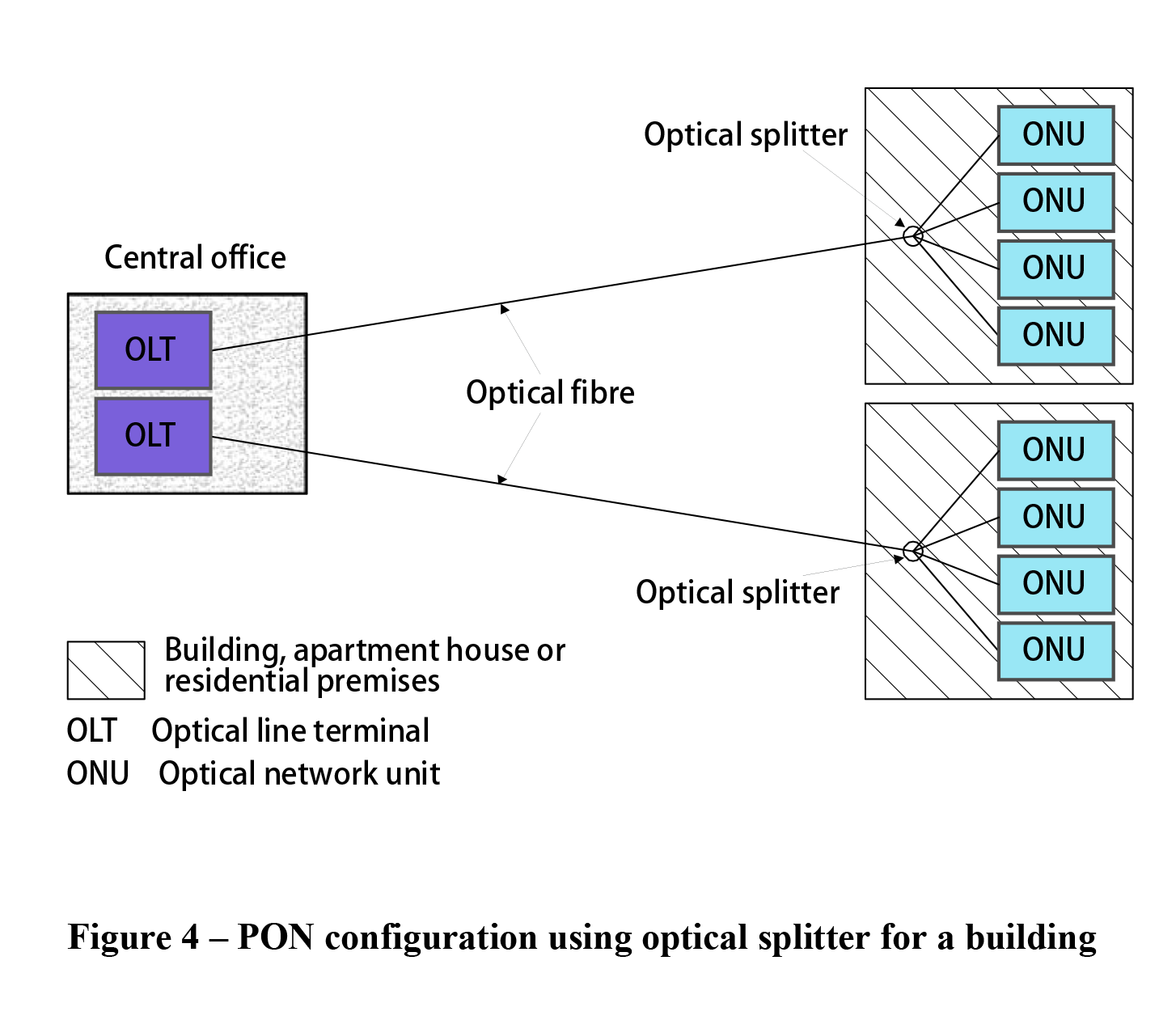Types of Fibre-optic Branching Components
There are two types of fibre-optic branching components in a PON (Passive Optical Network). One type has a wavelength multiplexer and demultiplexer, the other does not.
Wavelength Selective Optical Branching Components
The fibre-optic branching component with a wavelength multiplexer and demultiplexer is also called WDM Device. It has two or more input (output) ports and one output (input) port where the light in each input port is restricted to a preselected wavelength range (the output of each port is a different preselected wavelength range), and the output is a combination of the light from the input ports (the input is an optical signal comprising two or more wavelength ranges) as shown in Figure 1a. This is mainly used in WDM Systems.
Non-wavelength Selective Optical Branching Components
The fibre-optic branching component without a wavelength multiplexer and demultiplexer is non-wavelength selective . It has three or more ports and optical power is shared among these ports in a predetermined fashion, without any amplification, switching or other active modulation, as shown in Figure 1b. It is also called an “optical splitter” or an “optical coupler”.
Ckick here to learn more about the Non-wavelength Selective Optical Branching Devices.
Non-wavelength Selective Optical Components in PON Configuration
The non-wavelength selective optical (or fibre-optic) branching component (also known as optical splitter) for PONs are characterized by the term 1 × X, where X = 4, 8, 16 or 32. The insertion loss increases as the number of branches is increased.
Optical Splitter In The Central Office
The basic configuration for a non-wavelength selective optical (or fibre-optic) branching component (also known as optical splitter) used in a central office is shown in Figure 2. Here, there is at least one fibre between the central office and the customer premises. Therefore, a large number of fibres are installed and distributed from the central office.
The environmental conditions for the optical branching component are benign because it is installed inside a central office.
Optical Splitter In Outside Plant
The basic configuration for an optical splitter used in an outside plant for a PON is shown in Figure 3. The optical splitter is located in a closure or cabinet in the outside plant.
Therefore, the number of distributed fibres between an OLT and the optical splitter can be reduced.
Click the following link to learn more and Discover the Fiber-optic World.



